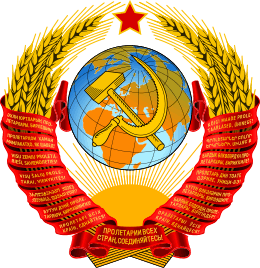Shanghai Cooperation Organisation
The Shanghai Cooperation Organisation (SCO), or Shanghai Pact,[1] is a Eurasian political, economic, and security alliance, the creation of which was announced on 15 June 2001 in Shanghai, China by the leaders of China, Kazakhstan, Kyrgyzstan, Russia, Tajikistan, and Uzbekistan; the Shanghai Cooperation Organisation Charter, formally establishing the organisation, was signed in June 2002 and entered into force on 19 September 2003. The original five nations, with the exclusion of Uzbekistan, were previously members of the Shanghai Five group, founded on 26 April 1996. Since then, the organisation has expanded its membership to eight countries when India and Pakistan joined SCO as full members on 9 June 2017 at a summit in Astana, Kazakhstan.
.svg.png) | |
 Flag | |
.svg.png) Members Observers Dialogue partners Observer applicants Disputed territories | |
| Abbreviation | SCO |
|---|---|
| Predecessor | Shanghai Five group, founded on 26 April 1996 |
| Formation | 2001 |
| Type | Mutual security, political, economic organisation |
| Headquarters | Beijing, China |
Membership |
|
Official language | Chinese and Russian |
Secretary General | Vladimir Norov |
Deputy Secretaries General |
|
| Website | SectSCO.org |
 |
|---|
| This article is part of a series on the politics and government of the Russian Federation |
|
|
|
|
Federalism
|
|
|
|
Related topics
|
|
|
The Heads of State Council (HSC) is the supreme decision-making body in the SCO, it meets once a year and adopts decisions and guidelines on all important matters of the organisation. Military exercises are also regularly conducted among members to promote cooperation and coordination against terrorism and other external threats, and to maintain regional peace and stability. The SCO is the largest regional organisation in the world in terms of geographical coverage and population, covering three-fifths of the Eurasian continent and nearly half of the human population.

Criticisms of the SCO include that it is used by member states to shield each other from international criticism regarding human rights violations.[2]
Origins
The Shanghai Five grouping was created 26 April 1996 with the signing of the Treaty on Deepening Military Trust in Border Regions in Shanghai, China by the heads of states of China, Kazakhstan, Kyrgyzstan, Russia and Tajikistan.[3]
On 24 April 1997, the same countries signed the Treaty on Reduction of Military Forces in Border Regions in a meeting in Moscow, Russia.[4] On 20 May 1997, President of Russia Boris Yeltsin and President of China Jiang Zemin signed a declaration on a "multipolar world".[5]
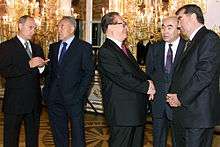
Subsequent annual summits of the Shanghai Five group occurred in Almaty, Kazakhstan in 1998, in Bishkek, Kyrgyzstan in 1999, and in Dushanbe, Tajikistan in 2000. At the Dushanbe summit, members agreed to "oppose intervention in other countries' internal affairs on the pretexts of 'humanitarianism' and 'protecting human rights;' and support the efforts of one another in safeguarding the five countries' national independence, sovereignty, territorial integrity, and social stability."[6]
In 2001, the annual summit returned to Shanghai. There the five member nations first admitted Uzbekistan in the Shanghai Five mechanism (thus transforming it into the Shanghai Six). Then all six heads of state signed on 15 June 2001 the Declaration of Shanghai Cooperation Organisation, praising the role played thus far by the Shanghai Five mechanism and aiming to transform it to a higher level of cooperation.
In June 2002, the heads of the SCO member states met in Saint Petersburg, Russia. There they signed the SCO Charter which expounded on the organisation's purposes, principles, structures and forms of operation, and established it in international law.
In July 2005, at the summit in Astana, Kazakhstan, with representatives of India, Iran, Mongolia and Pakistan attending an SCO summit for the first time, the president of the host country, Nursultan Nazarbayev, greeted the guests in words that had never been used before in any context: "The leaders of the states sitting at this negotiation table are representatives of half of humanity".[7]
By 2007 the SCO had initiated over twenty large-scale projects related to transportation, energy and telecommunications and held regular meetings of security, military, defence, foreign affairs, economic, cultural, banking and other officials from its member states.
In July 2015 in Ufa, Russia, the SCO decided to admit India and Pakistan as full members. Both signed the memorandum of obligations in June 2016 in Tashkent, Uzbekistan, thereby starting the formal process of joining the SCO as full members.[8] On 9 June 2017, at a summit in Astana, India and Pakistan officially joined SCO as full members.
The SCO has established relations with the United Nations in 2004 (where it is an observer in the General Assembly), Commonwealth of Independent States in 2005, Association of Southeast Asian Nations (ASEAN) in 2005, the Collective Security Treaty Organization in 2007, the Economic Cooperation Organization in 2007, the United Nations Office on Drugs and Crime in 2011, the Conference on Interaction and Confidence-Building Measures in Asia (CICA) in 2014, and the United Nations Economic and Social Commission for Asia and the Pacific in 2015,[9] African Union in 2018.[10]
The SCO is widely regarded as the "alliance of the East", due to its growing centrality in Asia-Pacific, and has been the primary security pillar of the region.[11][12] In 2017, SCO's eight full members account for approximately half of the world's population, a quarter of the world's GDP, and about 80% of Eurasia's landmass.
Organisational structure
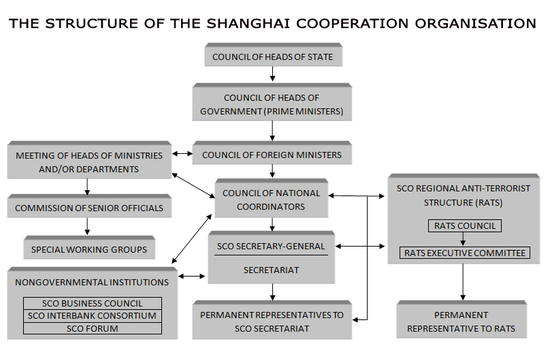
The Council of Heads of State is the top decision-making body in the SCO. This council meets at the SCO summits, which are held each year in one of the member states' capital cities. The current Council of Heads of State consists of:
- Arif Alvi (Pakistan)
- Sooronbai Jeenbekov (Kyrgyzstan)
- Emomali Rahmon (Tajikistan)
- Xi Jinping (China)
- Ram Nath Kovind (India)
- Shavkat Mirziyoyev (Uzbekistan)
- Vladimir Putin (Russia)
- Kassym-Jomart Tokayev (Kazakhstan)
The Council of Heads of Government is the second-highest council in the organisation. This council also holds annual summits, at which time members discuss issues of multilateral cooperation. The council also approves the organisation's budget. The current Council of Heads of Government consists of:
- Mukhammedkalyi Abylgaziev (Kyrgyzstan)
- Kokhir Rasulzoda (Tajikistan)
- Abdulla Aripov (Uzbekistan)
- Imran Khan (Pakistan)
- Li Keqiang (China)
- Askar Mamin (Kazakhstan)
- Dmitry Medvedev (Russia)
- Narendra Modi (India)
The Council of Foreign Ministers also hold regular meetings, where they discuss the current international situation and the SCO's interaction with other international organisations.[13]
The Council of National Coordinators coordinates the multilateral cooperation of member states within the framework of the SCO's charter.
The Secretariat of the SCO is the primary executive body of the organisation. It serves to implement organisational decisions and decrees, drafts proposed documents (such as declarations and agendas), function as a document depository for the organisation, arranges specific activities within the SCO framework, and promotes and disseminates information about the SCO. It is located in Beijing. The current SCO Secretary-General is Rashid Alimov of Tajikistan, appointed to the office of Shanghai Cooperation Organisation Secretary-General in January 2016.[14]
The Regional Anti-Terrorist Structure (RATS), headquartered in Tashkent, Uzbekistan, is a permanent organ of the SCO which serves to promote cooperation of member states against the three evils of terrorism, separatism and extremism. The Head of RATS is elected to a three-year term. Each member state also sends a permanent representative to RATS.[15]
The official working languages of the Shanghai Cooperation Organisation are Chinese and Russian.
Membership
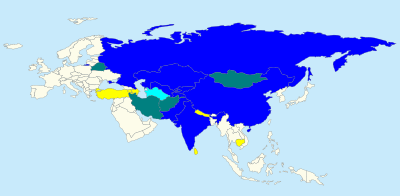
Member states
| Date | Country |
|---|---|
| 26 April 1996 | |
| 15 June 2001 | |
| 9 June 2017 | |
Observer states
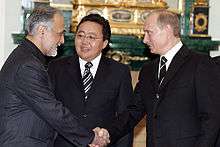
Afghanistan received observer status at the 2012 SCO summit in Beijing, China on 6 June 2012.[17]
In 2008, Belarus applied for partner status in the organisation and was promised Kazakhstan's support towards that goal. However, Russian Defence Minister Sergei Ivanov voiced doubt on the probability of Belarus' membership, saying that Belarus was a purely European country.[19] Despite this, Belarus was accepted as a Dialogue Partner at the 2009 SCO Summit in Yekaterinburg, and after applying in 2012, was granted observer status in 2015.[18]
Iran has observer status in the organisation, and applied for full membership on 24 March 2008.[20] However, because it was under sanctions levied by the United Nations at the time, it was blocked from admission as a new member. The SCO stated that any country under UN sanctions could not be admitted.[21] After the UN sanctions were lifted, Chinese president Xi Jinping announced its support for Iran's full membership in SCO during a state visit to Iran in January 2016.[22]
Mongolia became the first country to receive observer status at the 2004 Tashkent Summit. Pakistan, India and Iran received observer status at the 2005 SCO summit in Astana, Kazakhstan on 5 July 2005.
Dialogue partners
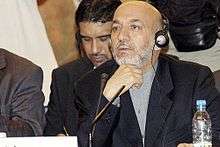
The position of Dialogue Partner was created in 2008.[23]
Nepal was granted dialogue partner status at the group's 2015 summit in Ufa, Russia.[24]
Sri Lanka was granted dialogue partner status at the group's 2009 summit in Yekaterinburg.[25][26]
Turkey, a member of NATO, was granted dialogue partner status in the Shanghai Cooperation Organisation (SCO) at the group's 2012 summit in Beijing.[17] Turkish Prime Minister Recep Tayyip Erdoğan has stated that he has discussed the possibility of abandoning Turkey's European Union membership candidacy in return for full membership in the Shanghai Cooperation Organisation.[27] This was reinforced again on 21 November 2016, after the European Parliament voted unanimously to suspend accession negotiations with Turkey.[28] Two days later, on 23 November 2016, Turkey was granted the chairmanship of the energy club of SCO for the 2017 period. That made Turkey the first country to chair a club in the organisation without full membership status.
Guest attendances

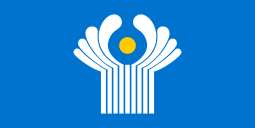
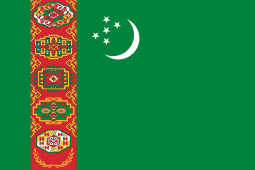

Future membership possibilities
In June 2010, the SCO approved a procedure of admitting new members.[21] Several states additionally participate as observers, some of whom have expressed interest in becoming full members in the future. The implications of Iran joining the organisation has been given much thought academically.[29][30] In early September 2013 Armenian Prime Minister Tigran Sargsyan said during his meeting with his Chinese counterpart that Armenia would like to obtain an observer status in the SCO.[31]
Meanwhile, in 2012 Armenia, Azerbaijan, Bangladesh, Nepal and Sri Lanka applied for observer status within the organisation.[32] Egypt[33] and Syria have also submitted applications for observer status,[34] while Israel,[35][36][37] Maldives, Ukraine,[38] Iraq,[39] and Saudi Arabia have applied for dialogue partner status.[40][41][42][43] Bahrain and Qatar have also officially applied to join the SCO.[44][45]
Turkmenistan has previously declared itself a permanently neutral country, which was recognised by a resolution adopted by the United Nations General Assembly, thus precluding its membership in a military alliance like the Shanghai Cooperation Organisation.[46][47]
Activities
Cooperation on security
The SCO is primarily centered on its member nations' Central Asian security-related concerns, often describing the main threats it confronts as being terrorism, separatism and extremism. However evidence is growing that its activities in the area of social development of its member states is increasing fast.[48]
At SCO summit, held in Tashkent, Uzbekistan, on 16–17 June 2004, the Regional Anti-Terrorist Structure (RATS) was established. On 21 April 2006, the SCO announced plans to fight cross-border drug crimes under the counter-terrorism rubric.[49]
In October 2007, the SCO signed an agreement with the Collective Security Treaty Organization (CSTO), in the Tajik capital Dushanbe, to broaden cooperation on issues such as security, crime, and drug trafficking.[50]
The organisation is also redefining cyberwarfare, saying that the dissemination of information "harmful to the spiritual, moral and cultural spheres of other states" should be considered a "security threat". An accord adopted in 2009 defined "information war", in part, as an effort by a state to undermine another's "political, economic, and social systems".[51] The Diplomat reported in 2017 that SCO has foiled 600 terror plots and extradited 500 terrorists through RATS.[52]
Military activities
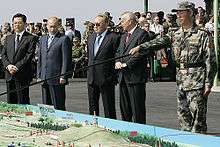
Over the past few years, the organisation's activities have expanded to include increased military cooperation, intelligence sharing, and counterterrorism.[53]
Military exercises are regularly conducted among members to promote cooperation and coordination against terrorism and other external threats, and to maintain regional peace and stability.[54][55] There have been a number of SCO joint military exercises. The first of these was held in 2003, with the first phase taking place in Kazakhstan and the second in China. Since then China and Russia have teamed up for large-scale war games in 2005 (Peace Mission 2005), 2007 and 2009, under the auspices of the Shanghai Cooperation Organisation. More than 4,000 soldiers participated at the joint military exercises in 2007 (known as "Peace Mission 2007") which took place in Chelyabinsk Russia near the Ural Mountains, as was agreed upon in April 2006 at a meeting of SCO Defence Ministers.[56][57] Russian Defence Minister Sergei Ivanov said that the exercises would be transparent and open to media and the public. Following the war games' successful completion, Russian officials began speaking of India joining such exercises in the future and the SCO taking on a military role. Peace Mission 2010, conducted 9–25 September at Kazakhstan's Matybulak training area, saw over 5,000 personnel from China, Russia, Kazakhstan, Kyrgyzstan and Tajikistan conduct joint planning and operational maneuvers.[58]
The SCO has served as a platform for larger military announcements by members. During the 2007 war games in Russia, with leaders of SCO member states in attendance including Chinese President Hu Jintao, Russia's President Vladimir Putin used the occasion to take advantage of a captive audience. Russian strategic bombers, he said, would resume regular long-range patrols for the first time since the Cold War. "Starting today, such tours of duty will be conducted regularly and on the strategic scale", Putin said. "Our pilots have been grounded for too long. They are happy to start a new life".
On 4 June 2014, in the Tajik capital Dushanbe, the idea was brought up to merge the SCO with the Collective Security Treaty Organization. It is still being debated.
Economic cooperation
Russia, Kazakhstan and Kyrgyzstan are also members of the Eurasian Economic Union. A Framework Agreement to enhance economic cooperation was signed by the SCO member states on 23 September 2003. At the same meeting the Premier of China, Wen Jiabao, proposed a long-term objective to establish a free trade area in the SCO, while other more immediate measures would be taken to improve the flow of goods in the region.[59][60] A follow up plan with 100 specific actions was signed one year later, on 23 September 2004.[61]
On 26 October 2005, during the Moscow Summit of the SCO, the Secretary General of the Organisation said that the SCO will prioritise joint energy projects; including in the oil and gas sector, the exploration of new hydrocarbon reserves, and joint use of water resources. The creation of the SCO Interbank Consortium was also agreed upon at that summit in order to fund future joint projects. The first meeting of the SCO Interbank Association was held in Beijing on 21–22 February 2006.[62][63] On 30 November 2006, at The SCO: Results and Perspectives, an international conference held in Almaty, the representative of the Russian Foreign Ministry announced that Russia is developing plans for an SCO "Energy Club".[64] The need for this "club" was reiterated by Moscow at an SCO summit in November 2007. Other SCO members, however, have not committed themselves to the idea.[65] However, during the 2008 summit it was stated that "Against the backdrop of a slowdown in the growth of world economy pursuing a responsible currency and financial policy, control over the capital flowing, ensuring food and energy security have been gaining special significance".[66]
At the 2007 SCO summit Iranian Vice President Parviz Davoodi addressed an initiative that had been garnering greater interest and assuming a heightened sense of urgency when he said, "The Shanghai Cooperation Organisation is a good venue for designing a new banking system which is independent from international banking systems".[67]
The address by President Putin also included these comments:
We now clearly see the defectiveness of the monopoly in world finance and the policy of economic selfishness. To solve the current problem Russia will take part in changing the global financial structure so that it will be able to guarantee stability and prosperity in the world and to ensure progress.
The world is seeing the emergence of a qualitatively different geo-political situation, with the emergence of new centers of economic growth and political influence.
We will witness and take part in the transformation of the global and regional security and development architectures adapted to new realities of the 21st century, when stability and prosperity are becoming inseparable notions.[68]
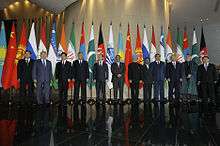
On 16 June 2009, at the Yekaterinburg Summit, China announced plans to provide a US$10 billion loan to SCO member states to shore up the struggling economies of its members amid the global financial crisis.[69] The summit was held together with the first BRIC summit, and the China–Russia joint statement said that they want a bigger quota in the International Monetary Fund.[70]
At the occasion of Bishkek summit June 2019, Pakistani Prime Minister, Imran Khan also gave a statement to build a market of local currency instead of US Dollars among the members of Shanghai Cooperation Organisation (SCO).[71]
Cultural cooperation
Cultural cooperation also occurs in the SCO framework. Culture ministers of the SCO met for the first time in Beijing on 12 April 2002, signing a joint statement for continued cooperation. The third meeting of the Culture Ministers took place in Tashkent, Uzbekistan, on 27–28 April 2006.[72][73]
An SCO Arts Festival and Exhibition was held for the first time during the Astana Summit in 2005. Kazakhstan has also suggested an SCO folk dance festival to take place in 2008, in Astana.[74]
Summits
According to the Charter of the SCO, summits of the Council of Heads of State shall be held annually at alternating venues. The locations of these summits follow the alphabetical order of the member state's name in Russian.[75] The charter also dictates that the Council of Heads of Government (that is, the Prime Ministers) shall meet annually in a place decided upon by the council members. The Council of Foreign Ministers is supposed to hold a summit one month before the annual summit of Heads of State. Extraordinary meetings of the Council of Foreign Ministers can be called by any two member states.[75]
List of summits
| Date | Country | Location |
|---|---|---|
| 14 June 2001 | Shanghai | |
| 7 June 2002 | Saint Petersburg | |
| 29 May 2003 | Moscow | |
| 17 June 2004 | Tashkent | |
| 5 July 2005 | Astana | |
| 15 June 2006 | Shanghai | |
| 16 August 2007 | Bishkek | |
| 28 August 2008 | Dushanbe | |
| 15–16 June 2009 | Yekaterinburg | |
| 10–11 June 2010 | Tashkent[76] | |
| 14–15 June 2011 | Astana[77] | |
| 6–7 June 2012 | Beijing | |
| 13 September 2013 | Bishkek | |
| 11–12 September 2014 | Dushanbe | |
| 9–10 July 2015 | Ufa | |
| 23–24 June 2016 | Tashkent[78] | |
| 8–9 June 2017 | Astana | |
| 9–10 June 2018 | Qingdao, Shandong[79] | |
| 14–15 June 2019 | Bishkek[80] | |
| July 2020 | Saint Petersburg[81] |
| Date | Country | Location |
|---|---|---|
| 14 September 2001 | Almaty | |
| — | — | — |
| 23 September 2003 | Beijing | |
| 23 September 2004 | Bishkek | |
| 26 October 2005 | Moscow | |
| 15 September 2006 | Dushanbe | |
| 2 November 2007 | Tashkent | |
| 30 October 2008 | Astana | |
| 14 October 2009 | Beijing[82] | |
| 25 November 2010 | Dushanbe[83] | |
| 7 November 2011 | Saint Petersburg | |
| 5 December 2012 | Bishkek[84] | |
| 29 November 2013 | Tashkent | |
| 14–15 December 2014 | Astana | |
| 14–15 December 2015 | Zhengzhou, Henan | |
| 2–3 November 2016 | Bishkek | |
| 30 November 2017 | Sochi | |
| 11–12 October 2018 | Dushanbe | |
| 1–2 November 2019 | Tashkent | |
| 2020 | New Delhi |
Analysis
Relations with the West
The United States applied for observer status in the SCO, but was rejected in 2005.[85]
At the Astana summit in July 2005, with the wars in Afghanistan and Iraq foreshadowing an indefinite presence of U.S. forces in Uzbekistan and Kyrgyzstan, the SCO requested the U.S. to set a clear timetable for withdrawing its troops from SCO member states. Shortly afterwards, Uzbekistan requested the U.S. to leave the K2 air base.[86]
The SCO has made no direct comments against the U.S. or its military presence in the region; however, some indirect statements at the past summits have been viewed by Western media outlets as "thinly veiled swipes at Washington".[87]
A European Parliament researcher expressed her view that "institutional weaknesses, a lack of common financial funds for the implementation of joint projects and conflicting national interests have prevented the SCO from achieving a higher level of regional cooperation".[88]
Geopolitical aspects
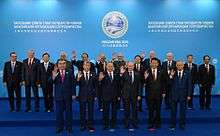
There have been many discussions and commentaries about the geopolitical nature of the Shanghai Cooperation Organisation. Matthew Brummer, in the Journal of International Affairs, tracks the implications of SCO expansion into the Persian Gulf.[89] Also, according to political scientist Thomas Ambrosio, one aim of SCO was to ensure that liberal democracy could not gain ground in these countries.[90]
Iranian writer Hamid Golpira had this to say on the topic: "According to Zbigniew Brzezinski's theory, control of the Eurasian landmass is the key to global domination and control of Central Asia is the key to control of the Eurasian landmass....Russia and China have been paying attention to Brzezinski's theory, since they formed the Shanghai Cooperation Organisation in 2001, ostensibly to curb extremism in the region and enhance border security, but most probably with the real objective of counterbalancing the activities of the United States and NATO in Central Asia".[91]
At a 2005 summit in Kazakhstan the SCO issued a Declaration of Heads of Member States of the Shanghai Cooperation Organisation which addressed their "concerns" and contained an elaboration of the organisation's principles. It included: "The heads of the member states point out that, against the backdrop of a contradictory process of globalisation, multilateral cooperation, which is based on the principles of equal right and mutual respect, non-intervention in internal affairs of sovereign states, non-confrontational way of thinking and consecutive movement towards democratisation of international relations, contributes to overall peace and security, and call upon the international community, irrespective of its differences in ideology and social structure, to form a new concept of security based on mutual trust, mutual benefit, equality and interaction."[92]
In November 2005 Russian Foreign Minister Sergey Lavrov reiterated that the "Shanghai Cooperation Organisation (SCO) is working to establish a rational and just world order" and that "The Shanghai Cooperation Organisation provides us with a unique opportunity to take part in the process of forming a fundamentally new model of geopolitical integration".[93]
The People's Daily expressed the matter in these terms: "The Declaration points out that the SCO member countries have the ability and responsibility to safeguard the security of the Central Asian region, and calls on Western countries to leave Central Asia. That is the most noticeable signal given by the Summit to the world".[94]
A 2010 analysis in American Legion Magazine said that 'Chinese Premier Wen Jiabao... has concluded that the United States is maneuvering "to preserve its status as the world's sole superpower and will not allow any country the chance to pose a challenge to it."'[95]
Current leaders of SCO member states
See also
References
-
- Millward, James A. (2007). intergovernmental Crossroads: A History of Xinjiang. Columbia University Press. p. 336. ISBN 978-0-231-13924-3. Archived from the original on 18 May 2016. Retrieved 28 July 2016.
- Zhao, Suisheng (2004). Chinese Foreign Policy: Pragmatism and Strategic Behavior. M.E. Sharpe. p. 263. ISBN 978-0-7656-1284-7. Archived from the original on 15 May 2016. Retrieved 28 July 2016.
- Menges, Constantine (2005). China: The Gathering Threat: The Gathering Threat. Thomas Nelson Inc. p. 460. ISBN 978-1-4185-5166-7. Archived from the original on 3 June 2016. Retrieved 28 July 2016.
- Sieff, Martin (2009). Shifting Superpowers: The New and Emerging Relationship Between the United States, China and India. Cato Institute. pp. 70–71. ISBN 978-1-935308-21-8. Retrieved 28 July 2016.
- Colin Mackerras; Foundation Professor in the School of Asian and International Studies Colin Mackerras (2 September 2003). China's Ethnic Minorities and Globalisation. Routledge. p. 168. ISBN 978-1-134-39288-9. Archived from the original on 11 May 2016. Retrieved 28 July 2016.
- Central Asia: A Gathering Storm?. M.E. Sharpe. 1 January 2002. p. 58. ISBN 978-0-7656-0866-6. Archived from the original on 9 May 2016. Retrieved 28 July 2016.
- Sieff, Martin (2012). That Should Still Be Us: How Thomas Friedman's Flat World Myths Are Keeping Us Flat on Our Backs. John Wiley & Sons. p. 36. ISBN 978-1-118-24063-2. Retrieved 28 July 2016.
- Osborne, Samuel (20 November 2016). "Turkey could join bloc with Russia and China instead of EU, President Erdogan says". Independent. United Kingdom. Archived from the original on 13 June 2018. Retrieved 9 June 2018.
Turkey could join the Shanghai Pact with Russia and China instead of the European Union, President Recep Tayyip Erdogan has said.
- "Exploring Politics And Religion In 'Three Daughters Of Eve'". NPR. United States. 8 December 2017. Archived from the original on 12 June 2018. Retrieved 9 June 2018.
My generation, we grew up with very different values in Turkey. And now we have a different Turkey, where the political elites are talking about joining the Shanghai Pact. They're saying, you know, the EU is not for us. And the Shanghai Pact, as you know, with Russia, with China, with Turkmenistan, Kyrgyzstan, that is the right place to be if you don't—if you have a very poor record of human rights and freedom of speech. I don't want my motherland to walk in the opposite direction.
- Darling, Daniel (30 August 2015). "Is the SCO Emerging as Eastern Counterweight to NATO?". RealClearDefense. Retrieved 8 April 2019.
- "The Shanghai Cooperation Organization". Archived from the original on 16 October 2018. Retrieved 15 October 2018.
- Al-Qahtani, Mutlaq (2006). "The Shanghai Cooperation Organization and the Law of International Organizations" (PDF). Chinese Journal of International Law. Oxford University Press. 5 (1): 130. doi:10.1093/chinesejil/jml012. ISSN 1540-1650. Archived (PDF) from the original on 16 June 2015. Retrieved 24 December 2014.
- "Russian-Chinese Joint Declaration on a Multipolar World and the Establishment of a New International Order". United Nations General Assembly. Archived from the original on 23 June 2017.
- Gill (30 November 2001). "Shanghai Five: An Attempt to Counter U.S. Influence in Asia?". Brookings. Archived from the original on 3 May 2015. Retrieved 26 April 2015.
- Kazinform, 5 July 2005.
- "India, Pakistan edge closer to joining SCO security bloc". Agence France-Presse. 24 June 2016. Archived from the original on 25 June 2016. Retrieved 24 June 2016 – via The Express Tribune.
- "External communication". Shanghai Cooperation Organisation. Archived from the original on 5 June 2017. Retrieved 9 June 2017.
- "AU, SCO anti-terror organs sign cooperation deal on fighting terrorism". Times of Islamabad. 12 December 2018. Retrieved 16 December 2018.
- "The SCO explores global governance for new era". Op-Ed. Global Times. 10 June 2018. Archived from the original on 12 October 2019. Retrieved 18 February 2019.
- Sata, Swagata (17 October 2014). "The future of the Shanghai Cooperation Organisation". East Asia Forum. Archived from the original on 23 February 2019. Retrieved 18 February 2019.
- "Session of the Council of Foreign Ministers from Member States of the Shanghai Cooperation Organisation" (Press release). Kuala Lumpur: Embassy of the Russian Federation in Malaysia. 9 July 2007. Archived from the original on 8 February 2012.
- "Secretary-General". Shanghai Cooperation Organisation. 2015. Archived from the original on 13 January 2016. Retrieved 11 June 2016.
- "Information on Regional Anti-Terrorist Structure of Shanghai Cooperation Organisation". Shanghai Cooperation Organisation. Archived from the original on 11 December 2008.
- "The Shanghai Cooperation Organisation". Shanghai Cooperation Organisation. Archived from the original on 8 September 2012. Retrieved 2012-09-18.
- "SCO accepts Afghanistan as observer, Turkey dialogue partner". Xinhua News Agency. 7 June 2012. Archived from the original on 28 November 2012. Retrieved 7 June 2012 – via People's Daily.
- "Belarus gets observer status in Shanghai Cooperation Organization". Belarusian Telegraph Agency. 10 July 2015. Archived from the original on 31 July 2015. Retrieved 2015-08-08.
- Lantratov, Konstantin; Orozaliev, Bek; Zygar, Mikhail; Safronov, Ivan (27 April 2006). "The Shanghai Cooperation Organisation acquires military character". Kommersant (75). p. 9. Archived from the original on 27 November 2016.
- "Iran applies for membership". Press TV. Archived from the original on 31 March 2009.
- Wu, Jiao; Li, Xiaokun (12 June 2010). "SCO agrees deal to expand". China Daily. Archived from the original on 17 June 2010. Retrieved 15 June 2010.
- "China supports Iran's application for full membership of SCO". Tehran, Iran. Xinhua News Agency. 23 January 2016. Archived from the original on 30 June 2016. Retrieved 11 June 2016.
- "Regulations on the Status of Dialogue Partner of the Shanghai Cooperation Organisation". The Shanghai Cooperation Organisation. 28 August 2008. Archived from the original on 14 February 2012. Retrieved 11 June 2016.
- "Press Release issued by Embassy of Nepal, Beijing on Nepal officially joined the Shanghai Cooperation Organization (SCO) as a dialogue partner". Government of Nepal – Ministry Of Foreign Affairs. 22 March 2016. Archived from the original on 4 August 2018. Retrieved 4 August 2018.
- "Sri Lanka gains partnership in SCO members welcome end to terror in country". Ministry of Defence, Democratic Socialist Republic of Sri Lanka. 30 December 2010. Archived from the original on 4 March 2016.
- Bedi, Rahul (2 June 2007). "Sri Lanka turns to Pakistan, China for military needs". IANS. Urdustan.com Network. Archived from the original on 4 June 2007. Retrieved 2 June 2007.
- Dalay, Galip (14 May 2013). "Turkey between Shanghai and Brussels". The New Turkey. Translated by Öz, Handan. Archived from the original on 6 February 2016. Retrieved 1 July 2013.
- Butler, Daren (21 November 2016). "Fed up with EU, Erdogan says Turkey could join Shanghai Group". Reuters. Archived from the original on 21 June 2017. Retrieved 21 November 2016.
- M. Dorsey, James (2018). "How Much Solidarity with Iran can the China-led SCO afford?". IndraStra Global. New York (published 31 May 2018). 004: 0040. ISSN 2381-3652. Archived from the original on 11 July 2018. Retrieved 11 July 2018 – via SSOAR.
- Brummer, Matthew (2007). "The Shanghai Cooperation Organisation and Iran: A Power-full Union". Journal of International Affairs. 60 (2): 185–198. JSTOR 24357978.
- "Armenia seeking observer status at Shanghai organization". ArmeniaNow.com. 11 September 2013. Archived from the original on 11 July 2015. Retrieved 21 July 2015.
- Moskovskij Komsomolets (15 September 2012). "Azerbaijan asks to join a new alliance of China and Russia". Azeri Daily. Archived from the original on 22 December 2014. Retrieved 22 December 2014.
- "Syria, Egypt may join Shanghai Cooperation Organization as observers". Moscow, Russia. TASS. 5 June 2015. Archived from the original on 3 January 2016. Retrieved 21 December 2015.
- "Syria applies for observer status at Shanghai security bloc — Russian Foreign Ministry". Moscow, Russia. TASS. 13 February 2015. Archived from the original on 11 July 2015. Retrieved 15 August 2015.
- "Syria, Israel, Egypt willing to join SCO's activity - president's special envoy". Interfax. 23 June 2016. Archived from the original on 16 August 2016. Retrieved 2016-06-23.
- Zhao, Minghao (23 June 2016). Li, Kun (ed.). "Xi's Eurasian visit: Shanghai Spirit gives new leap to SCO". CCTV. Archived from the original on 18 September 2016. Retrieved 23 June 2016.
- "Syria, Egypt, Israel Apply to Join the SCO". Fort Russ. Translated by Richardson, Ollie. 26 June 2016. Archived from the original on 16 June 2019. Retrieved 30 July 2016.
- "Kiev Request For SCO Partner Status Still in Force". Ufa, Russa. Sputnik. 10 July 2015. Archived from the original on 16 October 2015. Retrieved 16 June 2019.
- "Iraqi Ambassador to Beijing meets secretary-General of the Shanghai cooperation organization". Ministry of Foreign Affairs (Iraq). Archived from the original on 10 October 2017. Retrieved 11 June 2017.
- "Egypt applies to become dialogue partner of Shanghai security bloc — Kremlin aide". TASS. 6 July 2015. Archived from the original on 20 August 2015. Retrieved 15 August 2015.
- "Azerbaijan intends to become SCO observer". Baku, Azerbaijan. Trend News Agency. 10 February 2015. Archived from the original on 2 August 2015. Retrieved 15 August 2015.
- "'SCO family' widening? Many candidates share 'Shanghai spirit', but expansion not a goal". TASS. 5 September 2019. Archived from the original on 6 September 2019. Retrieved 5 September 2019.
- "Саудовская Аравия устремилась в ШОС". Abkhazian Network News Agency. 18 October 2018. Archived from the original on 15 August 2019. Retrieved 22 August 2019.
- "Катар, Бахрейн и Израиль просят о приеме в ШОС". Мир 24. 5 December 2017. Archived from the original on 22 August 2019. Retrieved 22 August 2019.
- "SCO receives membership requests from Qatar, Bahrain". Interfax. 5 December 2017. Archived from the original on 7 December 2017. Retrieved 22 August 2019.
- United Nations General Assembly Session 90 Resolution 50/80. Maintenance of international security A/RES/50/80 12 December 1995. Retrieved 18 February 2019.
- Shubham (7 June 2018). "SCO Summit 2018: Why Turkmenistan is not part of the Eurasia security bloc". oneindia.com. Archived from the original on 20 February 2019. Retrieved 19 February 2019.
- Zaidi, Mujtaba Haider (20 August 2013). "The Shanghai Co-operation Organisation and US Supremacy". African Herald Express. Archived from the original on 3 December 2013. Retrieved 21 August 2013.
- Luan, Shanglin, ed. (22 April 2006). "SCO to intensify fight against cross-border drug crimes". Beijing. Xinhua News Agency. Archived from the original on 15 May 2015. Retrieved 11 June 2016.
- "Security alliances led by Russia, China link up". Business Recorder. Dushanbe. 6 October 2007. Archived from the original on 4 August 2018. Retrieved 4 August 2018.
- Gjelten, Tom (23 September 2010). "Seeing The Internet As An 'Information Weapon'". National Public Radio. Archived from the original on 24 September 2010. Retrieved 23 September 2010.
- Desai, Suyash (5 December 2017). "India's SCO Challenge". The Diplomat. Archived from the original on 6 April 2018. Retrieved 16 June 2019.
- Scheineson, Andrew (24 March 2009). "The Shanghai Cooperation Organization". Council on Foreign Relations. Archived from the original on 11 May 2010. Retrieved 21 July 2015.
- Zhang, Zhihao (5 June 2018). "SCO military drill seeks trust, stability". China Daily. Archived from the original on 22 July 2018. Retrieved 4 August 2018.
- "About SCO". Shanghai Cooperation Organisation. Archived from the original on 28 October 2017. Retrieved 9 June 2017.
- Hutzler, Charles (26 April 2006). "China, Russia, Others to Hold Joint Drills". Associated Press. Archived from the original on 4 September 2015. Retrieved 12 June 2015 – via HighBeam Research.
- Yu, Bin (17 October 2007). "Common exercise, different goals". The New York Times. Archived from the original on 14 June 2015. Retrieved 12 June 2015.
- Boland, Julie (29 October 2010), Learning From The Shanghai Cooperation Organization's 'Peace Mission-2010' Exercise", The Brookings Institution, archived from the original on 28 June 2011
- Kyodo News (23 September 2003). "LEAD: Central Asian powers agree to pursue free-trade zone". Beijing: Kyodo News International, Inc. Archived from the original on 17 July 2015. Retrieved 21 July 2015.
- "China Intensifies Regional Trade Talks". Archived from the original on 24 October 2007. International Centre for Trade and Sustainable Development (ICTSD)
- China Foreign Ministry (23 September 2004). "Joint Communique of the Council of the Governmental Heads (Prime Ministers) of Shanghai Cooperation Organisation Member States" (Press release). Archived from the original on 30 March 2009.
- Blagov, Sergei (31 October 2005). "Shanghai Cooperation Organisation Eyes Economic, Security Cooperation". Eurasia Daily Monitor. The Jamestown Foundation. Archived from the original on 1 November 2007.
- "SCO Ministers of Foreign Economic Activity and Trade to meet in Tashkent". National Bank of Uzbekistan. Archived from the original on 15 August 2011.
- "Russia's Foreign Ministry develops concept of SCO Energy Club". Kazakhstan Today. Almaty, Kazakhstan: Gazeta.kz Internet Agency. 1 December 2006. Archived from the original on 7 October 2007. Retrieved 3 December 2006.
- Blagov, Sergei (6 November 2007). "Russia Urges Formation of Central Asian Energy Club". Eurasianet. The Open Society Institute. Archived from the original on 4 March 2016. Retrieved 11 June 2016.
- "Chronicle of Main Events of "Shanghai Five" and Shanghai Cooperation Organisation". The Shanghai Cooperation Organisation. 2008. Archived from the original on 14 October 2008.
- Mehr News Agency, 31 October 2008.
- Russia Today, 30 October 2008
- Deng, Shasha, ed. (16 June 2009). "China to provide 10-billion-dollar loan to SCO members". Yekaterinburg, Russia. Xinhua News Agency. Archived from the original on 4 March 2016. Retrieved 21 July 2015.
- Yan, ed. (18 June 2009). "China, Russia sign five-point joint statement". Xinhua News Agency. Archived from the original on 20 June 2009. Retrieved 23 June 2009.
They also said that a new round of the IMF quota formula review and the reform schemes of the World Bank should be completed on time and that the emerging markets and developing countries should have a bigger say and broader representation in the international financial institutions.
- "Shanghai Cooperation Organization summit kicks off in Bishkek". www.aa.com.tr. Archived from the original on 29 September 2019. Retrieved 29 September 2019.
- "Culture Ministers of SCO Member States Meet in Beijing". People's Daily. People's Daily Online. 13 April 2002. Archived from the original on 26 April 2013. Retrieved 11 June 2016.
- "SCO Culture Ministers to Meet in Tashkent". Kazakhstan Today. Almaty, Kazakhstan: Gazeta.kz Internet Agency. 17 April 2006. Archived from the original on 18 April 2009.
- "Kazakhstan Backs Promotion of SCO Cultural Ties". KazInform. KazInform International News Agency. Archived from the original on 3 March 2016.
- "Charter of the Shanghai Cooperation Organisation". Shanghai Cooperation Organisation. Archived from the original on 13 July 2014.
- "Joint Communiqué of Meeting of the Council of the Heads of the Member States of the Shanghai Cooperation Organisation". Shanghai Cooperation Organisation. Archived from the original on 10 July 2014.
- Tang, Danlu, ed. (11 June 2010). "SCO vows to strengthen cooperation with its observers, dialogue partners". Tashkent, Uzbekistan. Xinhua News Agency. Archived from the original on 6 November 2012. Retrieved 11 June 2016.
- Song Miou (10 July 2015). "Uzbekistan to host 16th SCO summit in 2016". Ufa, Russia. Xinhua News Agency. Archived from the original on 3 October 2015. Retrieved 11 June 2016.
- "Iran FM in India to protect trade ties against US sanctions". PressTV. 28 May 2018. Archived from the original on 3 June 2018. Retrieved 4 June 2018.
- "Kyrgyzstan to host SCO summit in June 2019". AKIpress News Agency. 11 January 2019. Archived from the original on 24 April 2019. Retrieved 24 April 2019.
- "Путин заявил о переносе саммитов БРИКС и ШОС из Челябинска". Archived from the original on 19 July 2019. Retrieved 21 July 2019.
- Ho, Stephanie (14 October 2009). "Shanghai Cooperation Organization Summit Concludes in Beijing". Beijing: Voice of America. Archived from the original on 26 October 2009. Retrieved 11 June 2016.
- "Wen arrives in Tajikistan for SCO meeting". Dushanbe, Tajikistan. Xinhua News Agency. 25 November 2010. Archived from the original on 7 August 2016. Retrieved 11 June 2016 – via China Daily.
- "SCO Meeting Expected to Boost Cooperation Among Members". The Gazette of Central Asia. Satrapia. 2 December 2012.
- Hiro, Dilip (16 June 2006). "Shanghai surprise: The summit of the Shanghai Cooperation Organisation reveals how power is shifting in the world". The Guardian. Archived from the original on 23 September 2014. Retrieved 19 June 2019.
- Varadarajan, Siddharth (8 July 2005). "Central Asia: China and Russia up the ante". The Hindu. Archived from the original on 29 May 2009. Retrieved 13 December 2007.
- Kucera, Joshua (19 August 2007). "Shanghai Cooperation Organisation Summiteers Take Shots at US Presence in Central Asia". Eurasianet. The Open Society Institute. Archived from the original on 4 March 2016. Retrieved 11 June 2016.
- Grieger, Gisela (26 June 2015). "The Shanghai Cooperation Organisation" (PDF). European Parliament Think Tank. p. 1. Archived (PDF) from the original on 27 May 2019. Retrieved 14 January 2018.
- Journal of International Affairs. 2007. The Shanghai Cooperation Organisation and Iran: A Power-full Union. Matthew Brummer
- Ambrosio (October 2008). "Catching the 'Shanghai Spirit': How the Shanghai Cooperation Organization Promotes Authoritarian Norms in Central Asia". Europe-Asia Studies. 60 (8).
- Golpira, Hamid (20 November 2008). "Iraq smoke screen". Tehran Times. Archived from the original on 4 August 2018. Retrieved 4 August 2018.
- "The Shanghai Cooperation Organisation". 13 July 2005. Archived from the original on 4 August 2014.
- UzReport, 28 November 2005
- People's Daily Online (8 July 2008), "Opinion: SCO sends strong signals for West to leave Central Asia", People's Daily, archived from the original on 9 August 2016, retrieved 11 June 2016
- Dowd, Alan W. (1 March 2010). "Friend or Foe?". American Legion Magazine. The American Legion. Archived from the original on 1 July 2016. Retrieved 12 June 2016.
- The de jure head of government of China is the Premier, whose current holder is Li Keqiang. The President of China is legally a ceremonial office, but the paramount leader has always held this office since 1993 except for the months of transition, and the current paramount leader is President Xi Jinping.
Further reading
- Mearsheimer, John (2016), "Shanghai Cooperation Organisation was never designed to compete with NATO", RT Interview.
- La coopération de Shanghai : conceptualiser la nouvelle Asie, P. Chabal, Presses de l'Université de Liège, 308 p; 2019 -
- Chabal, Pierre (2016), L'Organisation de Coopération de Shanghai et la construction de "la nouvelle Asie", Brussels: Peter Lang, 492 p.
- Chabal, Pierre (2015), Concurrences Interrégionales Europe-Asie au 21ème siècle, Brussels: Peter Lang, 388 p.
- Kalra, Prajakti and Saxena, Siddharth "Shanghai Cooperation Organisation and Prospects of Development in Eurasia Region" Turkish Policy Quarterly, Vol 6. No.2, 2007
- Sznajder, Ariel Pablo, "China's Shanghai Cooperation Organisation Strategy", University of California Press, May 2006
- Oresman, Matthew, "Beyond the Battle of Talas: China's Re-emergence in Central Asia" (PDF). Archived from the original (PDF) on 26 March 2010. (4.74 MiB), National Defence University Press, August 2004
- Gill, Bates and Oresman, Matthew, China's New Journey to the West: Report on China's Emergence in Central Asia and Implications for U.S. Interests, CSIS Press, August 2003
- Fels, Enrico (2009), Assessing Eurasia's Powerhouse. An Inquiry into the Nature of the Shanghai Cooperation Organisation, Winkler Verlag: Bochum. ISBN 978-3-89911-107-1
- Yom, Sean L. (2002). "Power Politics in Central Asia: The Future of the Shanghai Cooperation Organisation". Harvard Asia Quarterly 6 (4) 48–54.
- Navrozov, Lev (17 February 2006). "The Sino-Russian 'Shanghai Cooperation Organization'". NewsMax.com. Archived from the original on 18 September 2006. Retrieved 4 August 2018.
- Daly, John. (19 July 2001). "'Shanghai Five' expands to combat Islamic radicals". Jane's Terrorism & Security Monitor.
- Colson, Charles. (5 August 2003). "Central Asia: Shanghai Cooperation Organisation Makes Military Debut". Radio Free Europe/Radio Liberty.
- Cohen, Dr. Ariel. (18 July 2001). "The Russia-China Friendship and Cooperation Treaty: A Strategic Shift in Eurasia?". The Heritage Foundation.
- Cohen, Dr. Ariel. (24 October 2005). "Competition over Eurasia: Are the U.S. and Russia on a Collision Course?". The Heritage Foundation.
- John Keefer Douglas, Matthew B. Nelson, and Kevin Schwartz; ""Fueling the Dragon's Flame: How China's Energy Demands Affect its Relationships in the Middle East"" (PDF). Archived from the original (PDF) on 12 December 2012. (162 KiB), United States–China Economic and Security Review Commission, October 2006.
- Adıbelli, Barış (2007). The Eurasia Strategy of China. Istanbul: IQ Publishing House.
- Adıbelli, Barış (2008). The Great Game in Eurasian Geopolitics. Istanbul: IQ Publishing House.
- Adıbelli, Barış (2007).Turkey–China Relations since the Ottoman Period. Istanbul: IQ Publishing House.
- Adıbelli, Barış (2007). The Shanghai Cooperation Organisation Dream of Turkey. Istanbul: Cumhuriyet Strateji.
- Adıbelli, Barış (2006). "Greater Eurasia Project". Istanbul: IQ Publishing House.
External links
| Wikimedia Commons has media related to Shanghai Cooperation Organisation. |
.svg.png)
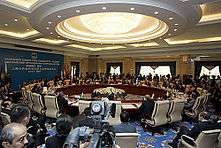
_1.jpg)
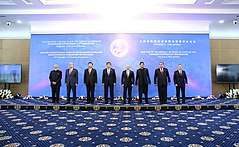

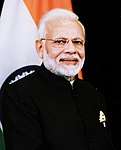
_04.jpg)
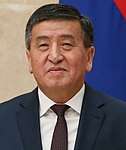
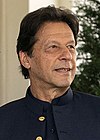
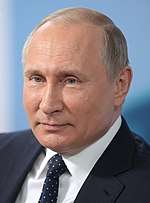
.jpg)
_2.jpg)
